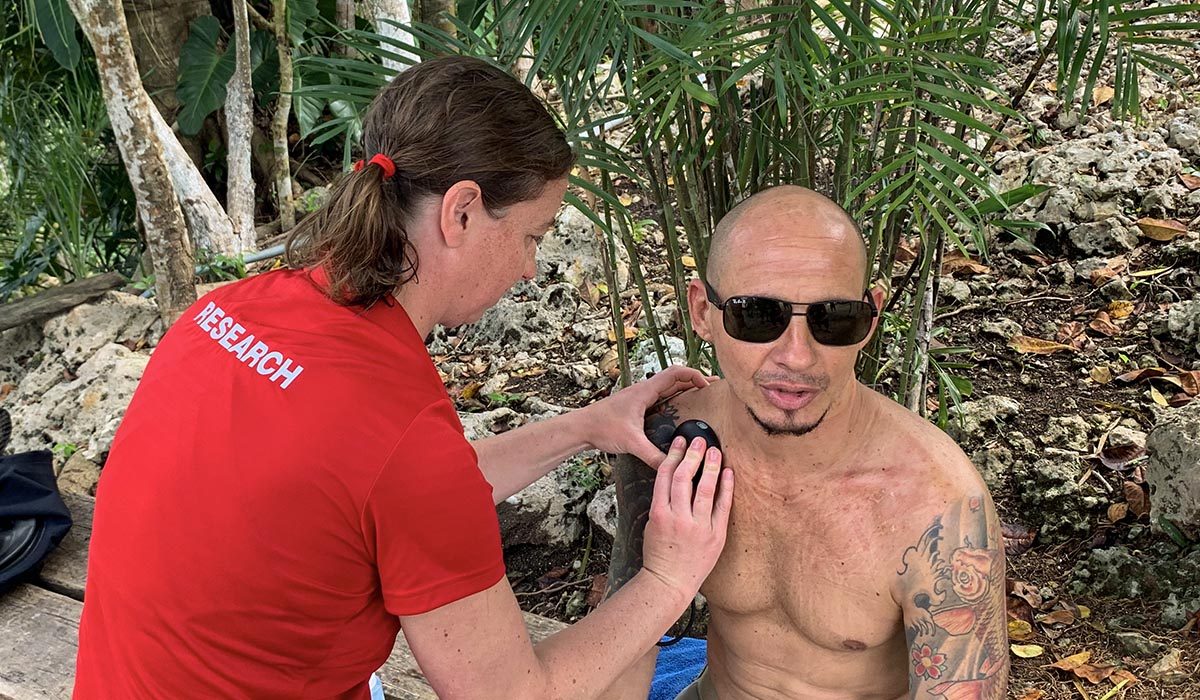Out of dae and irrelevant to the PADI Deep Diver course.As to current science on that matter, a good look at what David J. Doolette, Ph.D. is doing at the Navy Experimental Diving Unit in Panama City (I think that is the city). Interesting work and dealing with deep stops, HE vs N2, and deep "bounce" diving (what we all do). And, to repeat myself, DAN doppler research.
What I found to be one of the most interesting topics Dr Doolette discussed was the fact that Navy tables past 150' were all all extrapolations and all based on sat diving, not recreational "bounce" diving. That is something he has been studying now for a while.
You are using an out of date browser. It may not display this or other websites correctly.
You should upgrade or use an alternative browser.
You should upgrade or use an alternative browser.
PADI Deep Diver course- gas management
- Thread starter jadairiii
- Start date
Please register or login
Welcome to ScubaBoard, the world's largest scuba diving community. Registration is not required to read the forums, but we encourage you to join. Joining has its benefits and enables you to participate in the discussions.
Benefits of registering include
- Ability to post and comment on topics and discussions.
- A Free photo gallery to share your dive photos with the world.
- You can make this box go away
DAN's experiments with doppler ultrasound testing really was a game changer and revealed that our "no decompression" dives produced quite a few bubbles on some divers.
I am not sure what DAN research you are talking about. Could you please link to it?And, to repeat myself, DAN doppler research.
To the best of my knowledge, the first use of Doppler blood imaging was done by PADI nearly a half century ago in the studies that led to the PADI Recreational Dive Planner. Those studies did indeed show that pretty much everyone bubbles to some degree while diving, with some people bubbling more than others. They were called "silent bubbles." One of the researchers, Dr. Michael Powell, was particularly interested in that. He mentioned it on a number of occasions on ScubaBoard back when he was ScubaBoard's Doc Deco. He was confounded by the fact that some people bubbled so much--his theory, which he could never prove, related to micronuclei created by exercise.
The point of that is that the fact that people bubble during NDL dives has been known for decades. It is not anything new, and I don't understand how it relates to this discussion.
BTW, more recent research on this, done by Dr. Doolette, indicates that not only does pretty much everyone bubble, but the degree to which they bubble varies from dive to dive.
jadairiii
Contributor
- Messages
- 1,375
- Reaction score
- 2,100
I am not sure what DAN research you are talking about. Could you please link to it?

Comparative Testing of Ultrasound Devices in Monitoring VGE
In this study, DAN researchers compare the effectiveness of three different ultrasound devices used to monitor post-dive venous gas emboli in healthy divers.
This is a comparison of different ultrasound devices. It is not a revelation about bubbling in NDL divers. For that, I believe we need to go way, way back to the PADI studies.
Comparative Testing of Ultrasound Devices in Monitoring VGE
In this study, DAN researchers compare the effectiveness of three different ultrasound devices used to monitor post-dive venous gas emboli in healthy divers.dan.org
jadairiii
Contributor
- Messages
- 1,375
- Reaction score
- 2,100
But the fact is, there are bubbles. The assumption, going back to Haldane was "no bubbles, no troubles", and no decompression needed.This is a comparison of different ultrasound devices. It is not a revelation about bubbling in NDL divers. For that, I believe we need to go way, way back to the PADI studies.
We now know, for a fact, that even on, supposedly, NDL dives, we got bubbles.
Haldane did not say that, that I can find. Who are you quoting?"no bubbles, no troubles",
Yes, there are bubbles. As I wrote, PADI discovered that well over 40 years ago. There is nothing new there. So what is your point about them?But the fact is, there are bubbles. The assumption, going back to Haldane was "no bubbles, no troubles", and no decompression needed.
We now know, for a fact, that even on, supposedly, NDL dives, we got bubbles.
jadairiii
Contributor
- Messages
- 1,375
- Reaction score
- 2,100
Do you really think Haldane said that? Haldane's experiments were seeing indication of DCS in goats, and he based his modeling on that issue. If my memory serve's me.Haldane did not say that, that I can find. Who are you quoting?
Its Friday, enjoy.
jadairiii
Contributor
- Messages
- 1,375
- Reaction score
- 2,100
The point was an offshoot of this topic when I made reference to every diving being a decompression dive. Which, of course, went down a rabbit hole, as most topics ultimately do on here. Why GUE developed its minimum gas standards, so that the buddy team could surface and conduct all necessary stops along the way.Yes, there are bubbles. As I wrote, PADI discovered that well over 40 years ago. There is nothing new there. So what is your point about them?
That is all.
How about responding to the post I wrote where I used your suggested parameters and my own thinking to argue a point in good faith and in a courteous manner, instead of just spewing inaccurate insults?Give it up. You are arguing with people who don't think anymore, and instead just quote GUE, wheter it is applicable or not.
Similar threads
- Replies
- 57
- Views
- 4,901
- Replies
- 45
- Views
- 3,779
- Replies
- 174
- Views
- 19,098
- Replies
- 135
- Views
- 4,939



